It isn’t a Dirty Trick to Vote in an Open Primary
The plurality of New Hampshire voters are unaffiliated. Should they all stay at home?
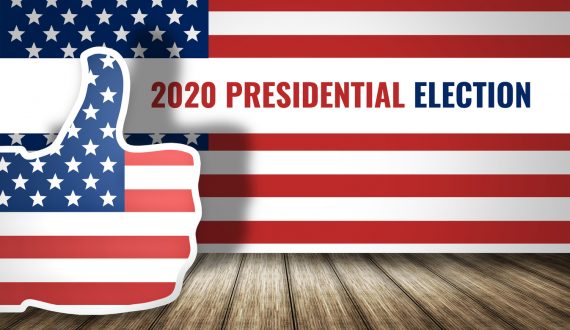
While I understand where my co-blogger, James Joyner, is coming from in regards to his tweet and then post about Bill Kristol’s efforts to get anti-Trump Republicans to vote for in the New Hampshire primary, I think the notion that it could, in any way, could be classified as a dirty trick is simply incorrect.
New Hampshire has a semi-open primary. While voters can register as a Democrat or a Republican, which locks them into the respective primary, voters can also choose to be unaffiliated, meaning they can choose either party on primary day.
Making the decision to vote in the R or D process (or even actively encouraging certain types of voters to do so) is not a dirty trick. It is partaking of the prevailing rules.
This is especially true in New Hampshire wherein 42% of the population register as “undeclared.” All this means, as a practical matter, is that that 42% makes their partisan choice on election day by requesting a D or R ballot, rather than declaring that intention by the October 25th deadline.
As such, I really disagree with James here:
As to my first point, to the extent a party primary is supposed to be an expression of the preferences of that party’s nominating electorate, there’s something less-than-savory about encouraging independents, much less adherents of the other major party, to vote there.
I think this notion, and some of the back and forth in the comments in his post, represents an over-romanticized notion of what party and party membership means, especially in the context of using primaries to choose candidates.
We do not have party membership in the country in any meaningful sense. Indeed, the closest thing to it is voting in a primary (either via registration in a closed primary state or by choosing to vote in a given primary in an open primary state. But even that is just a choice on a given day. One’s general election vote is not dictated by one’s primary preferences.
Primaries give citizens a way to affect who gets elected. While I get that there is some psychic reward for voting for one’s team, there is plenty of room for strategic choices. If one is an independent in New Hampshire, why vote in the GOP primary? Trump is going to be the nominee. So, why not vote for the Democrat one most prefers?
In the 2018 Alabama Senate Special Election, I voted in the Republican primary (Alabama has open primaries). I specifically did so to vote against Roy Moore (as I was pretty convinced, not unreasonably) that the winner of the GOP primary would win the seat. I vote for Jones in the general.
I don’t see those choices as unethical. I see them using the options I have as a citizen to try, in my small way, to effect who will take office.
Ultimately, I get that one can vote for a Democratic candidate and not be a Democrat in one’s heart (whatever that ultimately means to a given person). But, as I have long argued about being an “independent” in one’s heart, the vote is what is counted.
To me, the vote cast and the preference it conveys at the moment of voting is far more important that what one feels one’s partisan identity really is. (Empirically, there is no way around it, in fact).
So, what Kristol is basically saying is that the partisan divide at the moment is really not purely R v. D, but it is Trump v. Not Trump. And, so, encouraging erstwhile Republicans to vote for a D they could stomach in November is smart, given that the process allows it in most states.
So, James is right: this move by Kristol can be spun as “NeverTrumpers are really Democrats” but while those NeverTrumpers may never be Democrats in their hearts, they really only have one viable place to cast their vote, and that is for whomever the Democrat nominates if their main goal is to oust Trump from office.
For that matter, actual Republicans in the 2016 primaries could not effectively coordinate voters to counter Trump’s nomination. As such, I find it very hard to believe (and history bears this out) that it is really hard to organize people who traditionally do not vote for party X to show up and have any serious influence on party X’s primary.
The only way to have candidate selection limited to true partisans is to have real party membership (likely paid membership). And, from there, limiting candidate selection to those true partisans.
The reality is, romance about democratized parties aside, what we have in the US is a multi-step process for selecting the president that starts with the primaries and then moves on to the general election for electors, who eventually cast actual votes for the president. And because of the rules in various states, some voters who adhere with one party will cross lines and vote in the opposite party’s primary (especially when one party has a competitive nomination and the other party doesn’t).
This is nothing wrong with this. It is legal and is a legitimate choice.
It is also unlikely to influence outcomes in any real way. It is hard enough to mobilize partisans (see our turnout rates), let alone trying to mobilize adherents to the opposite party to get off their sofas and go vote.

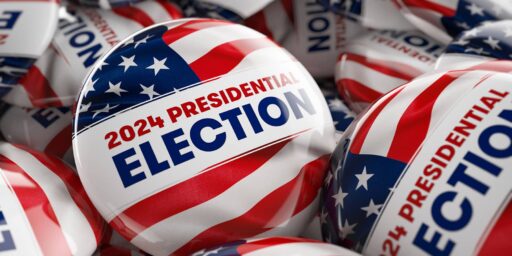
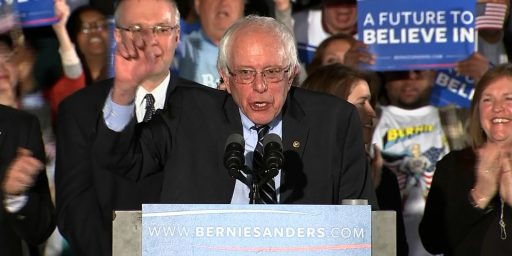
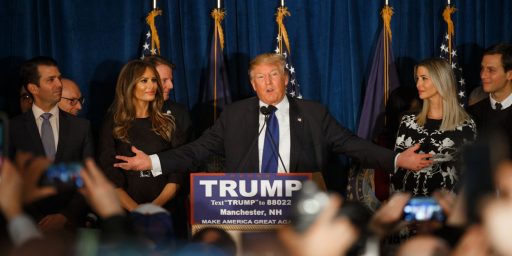
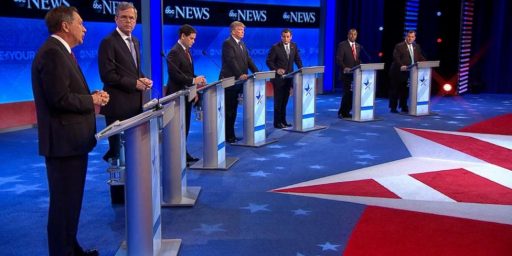
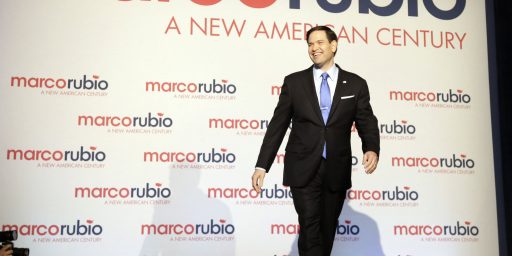
I don’t think we’re in significant disagreement on this.
The tweet that inspired the post was based on how partisans would perceive Kristol’s gambit. Democrats will see it, regardless of the fact that it’s perfectly legal, as interference by Republicans in their party’s affairs. That’s especially true of Bernie Bros and even Warren supporters who very much don’t want an influx of Republicans boosting the moderates.
But I give Kristol a pass based on intent: He’s trying to get an electable Democrat nominated, not the opposite. Similar to your anti-Moore vote in 2018, you were doing it to help the state, not harm the GOP.
But I would have a different view—and suspect you would as well—if Trump and the GOP machine were taking advantage of a basically uncontested GOP primary and urging supporters to vote for Sanders or some other candidate they thought they could crush in November. That would be unsporting—but just as legal under the rules as what Kristol is attempting.
And yet, party affiliation is currently one of our most tribal affiliations…
To the main point, it depends on the motivation. I lean generally towards James, which is why I favor closed primaries, but agree with you that open primaries are fair game for actual independents who are interested in supporting a particular nominee of a party. Where is gets problematic, however, are the efforts to cast “strategic” votes when you have no interest or expectation of voting for a candidate of that party in the general.
@SKI:
“Where is gets problematic, however, are the efforts to cast “strategic” votes when you have no interest or expectation of voting for a candidate of that party in the general.”
Or even more problematically, when you vote for a person who you expect to be unpopular because it is your preference that the candidate of the opposing party wins.
@SKI:
I think you are getting at a major problem here. Partisan ID is a deeply tribal identity, yes. And yet, we have really weak parties.
Our parties are so weak that the GOP was taken over by an amateur who had no appreciable experience in Republican.
And, our parties are so weak that the arguable frontrunner for the Democratic Party nomination is a lifelong independent.
And yet, we will polarize around these two organizations.
Something is messed up, yes?
@James Joyner:
If such a strategy were effective in a given contest, I think that it would, yes, be problematic. I suspect, too, it would lead to rules changes.
I also doubt that such a strategy could be efficacious, else it would have been done successfully by now.
Turnout in these things is low. It is hard enough to get committed partisans out to vote for their prefered candidate (look at the hand-wringing over IA turnout). How much harder is it to motivate the kind of behavior you are suggesting?
@SKI:
Why? (A sincere question).
@Steven L. Taylor: Oh, sure. But it really wouldn’t take a massive amount to impact an Iowa or New Hampshire given their size. Hell, Trump supporters apparently self-sabotaged the Iowa Caucuses phone lines just for the lulz.
@James Joyner: Sure. But getting people to clog phone lines is different than getting people to go to polls in February (and it takes even fewer to clog phone lines than to affect electoral outcomes).
But one really doesn’t know at that point in the process (meaning, by the NH primary).
My philosophy on this might not be the norm, but I think it’s entirely ethical. My objective/hope is to have two candidates at the top of the ticket who I believe could effectively serve as president, irrespective of whether I agree with them or not.
I’m registered as undeclared in NH, and have pulled both Dem and Rep. ballots. I voted for Hillary in the 2008 primary because I felt she had the experience needed to be president, while I felt her opponent did not–and, I ended up voting for McCain for that reason (which admittedly now seems very quaint). I pulled a Republican ballot in 2012 and voted for Huntsman, even though I was 99% certain I’d be voting for Obama that year. In 2016, I again pulled a Republican primary ballot because I felt it important to do whatever I could to stop Trump (I voted for Kasich). If it had been Kasich v. Clinton, I would have still voted for Clinton. If it had been Kasich vs. Sanders, I might have ended up voting for Kasich in the general–but of course I don’t know for certain, that’s the thing about hypotheticals–the entire race would have been different.
The way I look at it is that I want no matter who wins to be competent. Right now there is a total void of competence in the White House/this administration, and it shows. It will take decades to repair the damage this clown is doing to our nation. So I’m more than okay with my strategic voting, because it isn’t about making things suck for the other side–it’s not sabotage voting, it’s “please let’s have competent leadership” voting.
Which,IIRC, is what the Brits do. Producing Corbin and Boris.
@James Joyner:
What think you of this:
(From a SC paper)
https://www.postandcourier.com/politics/upstate-gop-leaders-plotting-to-impact-sc-democratic-primary-by/article_f1e7abd2-4788-11ea-aa9f-33a1d262994c.html
This tactic has been tried before without, in the event, much success. But past performance is not a guide to future results.
The above blockquote may have been from here:
https://www.theatlantic.com/politics/archive/2020/02/bernie-sanders-new-hampshire-independents/606247/
@Steven L. Taylor: Voting for someone because they are a bad choice and you think that your side would have an easier chance against them is wrong. It is the very definition of ratf*cking.
@gVOR08:
Interestingly, the rules for the Labour leadership election allowed ‘supporters’ who weren’t party members to pay a nominal fee and vote in that election. A number of conservative commentators encouraged conservatives to do just that, and vote for Corbyn as the least electable candidate – the ‘unsporting’ but pretty inevitable behavior that James says can occur in open primaries.
I guess it’s just a consequence you live with if you think it’s worth letting unaffiliated people vote in a party process, especially if the number of people who make the effort to vote mischievously is pretty small.
@Jen:
As long as both parties are holding competitive primaries, there is not much problem, nothing wrong with strategic voting. (I might – not decided for certain yet – vote strategically to keep Sanders from getting to a majority. My current real preference is probably also the strategic choice though).
The problem is when only one party has a competitive primary, there is real potential, as with my South Carolina example, for rodent sexytime to become significant.
Perhaps, if rodent sexytime is significant in the 2020 primaries, the DNC may have some thoughts on how desirable open primaries really are.
@SKI:
To me that is one expansive definition of ratfucking.
Keep in mind: I am increasingly of the opinion that primaries are a terrible idea. However, if the process if legally allows a voter to register their preference and to influence, in a small way, who the office holder will be is the very essense of representative democracy.
(Of course, it may not be the best way to generate representative outcomes, but that is a different argument).
I would love a defense of your position apart from a mere assertion that it is wrong.
Put another way: I have a vote in the primary. I want candidate X. If I think that the best way to get candidate X is to vote for candidate Y in candidate Y’s primary, how is that a dirty trick?
How is that not me using my singular vote in step in the process to register my preference?
As far as I understand it, states set the parameters and qualifications for voting. The DNC might not like how NH operates one bit, but it’d be up to the state to make that call. If the DNC insisted on closing the primary, it would set off an interesting set of circumstances, because the only penalty they could issue would be to take away the FITN status–but we have it in our state law that we hold the first primary.
As an unaffiliated voter, I appreciate the semi-open primary we have (it is not really a totally open primary–people registered as Democrats or Republicans can’t wander in today and pull the opposite party’s ballot. You have to be undeclared to choose, and that (registering undeclared) had to be done by late October.) That would be some incredible foresight–to de-register from a political party by the prior October to vote in the other party’s primary the following February.
@Jen:
I have vivid memories of Michigan and Florida deciding to hold their primaries on dates the DNC disapproved of. Their were consequences, including some very unhappy PUMA’s.
(Even though the Democrats in at least one of them opposed the date, the date had been set by a GOP controlled state legislature).
@Steven L. Taylor:
Legally allowed doesn’t mean morally acceptable.
It is akin to choosing to attend a public event for people who support “x” and deliberately creating conditions to make the event a failure. Setting off a stink bomb say. You have the right to be there but you are being a complete jackass.
Society can’t function if social norms aren’t observed. People voting to spoil the other sides’ primary are prioritizing their “right” to do so over other people’s rights to participate and are being disrespectful and, IMO, morally wrong.
@Jen:
And if the DNC tells you “you’re not the boss of me?” You do about it what?
@SKI:
You have the right to be there. Being a jackass would get you rightly expelled (especially if you set off a stink bomb).
This is not a good analogy at all.
@charon:
I genuinely don’t know–that’s why I noted it would set off a series of interesting consequences here. The one thing that Democrats and Republicans agree on here is maintaining the FITN status–this isn’t just about historical pride, it’s also a surprising source of business revenue. I really don’t know what would happen, but best bet would be court challenges of some sort.
@Steven L. Taylor: Really?
Ok, not a stink bomb and make the event in a public park. You keep talking over people at the rally or play music loudly so they can’t have their event. You have the right to be in the park but are being rude and deliberately disruptive. Eventually the town may pass an ordinance trying to minimize the impact but that doesn’t change the morality of your actions.
Another example: the abortion protesters who prioritize their view of morality over other people’s right to obtain health care and block access to clinics. Eventually laws were passed keeping them back at a distance but that doesn’t justify their harassment of others.
@Steven L. Taylor:
Huh. There have been primaries my entire semi-adult to adult life and they seem such an obvious part of how we select a nominee that I haven’t even considered whether I have an opinion on them.
Feats of strength would likely remove the septuagenarian cohort, but would also unfairly discriminate on gender. Dance offs have the problem that the judges might be biased towards a candidate based on their positions, so we would need to have them dance somewhere away from the judges in a body capture suit, and then generate a CGI animal or something — so, that’s doable. We could go the lottery route, if we believe we need a lucky nominee rather than a skilled nominee.
Lots of options.
@Jen:
Why would you ever register with a party in NH? It seems like it just limits your choices with no benefit at all.
This seems like an odd discussion to be having when one of the leading candidates in the Democratic primary isn’t even a Democrat. If voting in a primary when you’re not a party member is to be considered ratfucking, then Bernie’s entire candidacy is capybarafucking.
(As an aside, if you don’t have a good mental image of a capybara, go search now… they have big square noses that are great)
Historically, mischief makers have accounted for nothing — ratflirtation? ratcatcalls? —and I expect the same here. The value of an open primary is greater (pull people into the party’s orbit). If that changes, the DNC can roll out rules next time that change delegate allocation or something, to encourage closed primaries.
@Gustopher: My experience with people registered by party in NH:
1) Those who either hold office or are within each party’s apparatus (state committees and so forth)
2) Die-hard partisans
3) Those considering running for office in the future
4) People who forgot to return to “unaffiliated” after voting in a primary*
As far as rank & file voters, not much benefit at all to affiliation.
*An undeclared voter who votes in a primary is essentially declaring for that party. If you don’t stop and reclaim undeclared status, you are added to the rolls of whichever party you pulled a ballot for–this happened to my husband after the 2016 primary. He forgot to stop at the table on the way out of voting, and got added to the Republican registered voter list, and it was actually kind of a challenge to go back to being undeclared.
This is why I don’t think there’s too much that can be accomplished via shenanigans with primary voting.
@Jen:
@charon:
If the DNC. Tried to pull the primary, NH would sy FU and have it any way. The DNC has two responses, refuse to seat NH delegates and try to punish candidates who choose to participate.
Neither threat would stop the primary. The DNC is simply too weak.
I don’t disagree with Dr. T. In fact we’re discussing gray area cases and I don’t particularly disagree with anybody. But I’m becoming aware of a conundrum.
There’s a fair argument that the rules and institutional structures push politicians to be careerists. Of course R senators covered their own arses by voting to acquit Trumpsky, and as long as it’s within the rules, forget their oaths, it’s unreasonable to expect anything else of them. But we’re also expecting civil servants and military officers to protect the Republic by respecting their oaths and doing the right thing. Seems like we’re expecting lower level people to respect a much higher standard than our elected officials. Perhaps we should be both demanding a higher standard of behavior from our elected officials and relying a lot less on the bureaucracy to protect us from Trumpian autocracy.
Speaking of ratfracking in the primaries, we’re seeing a whole lot of leaking about Giuliani and Ukraine and Biden. You’d think they’d want to keep it quiet until they’re ready to spring it on Biden once, and if, he becomes the presumptive nominee. I keep wondering if the Rs aren’t trying to hurt Biden in the primaries by undercutting his electability argument. They must realize there’s no there there and that it might be hard to keep the story going until November, so they might as well use it while it’s fresh. Tempering this is the realization that the Rs don’t really need substance to keep charges and investigations going.
@Sleeping Dog: All true, but my bigger point was this isn’t simply a matter of one party or the other making a decision like this. It’s the state’s, and even if the party decided to penalize, NH won’t give up having the first primary willingly, and even if the DNC makes a change and says “okay, we’re going to have regional primaries on x, y, z dates” NH *still* has a law on the books that would require establishing our primary before any of those regional primary dates.
In short, yes you are correct, NH would indeed say FU and have the primary anyway–and neither Republicans nor Democrats in this state would be inclined to change the law that is on the books mandating it.
@Sleeping Dog: @Jen:
The states conduct primaries. They staff them (partially), pay for them, provide resources to them. This gives them some power.
The DNC puts on the convention, pays for it, decides who is permitted to attend and vote. So the DNC also has some power.
You all are speculating who has the power to get their way, but you really do not know.
In the real world, thee is negotiating, getting your way, making concessions etc.
I can remember the bad old days before primaries became so dominant. Sometimes there would be intrastate power struggles, with two competing slates of delegates sent to the convention, where the convention would choose which would be seated.
So, I’m a Dem living in a Rep dominated district. For a state-wide election voting in the Dem primary is basically a waste of time – might just as well sit out. But being the good citizen, I go to the primary poll ask for a R ballot and vote for the primary candidate that most closely represents the character , values and proposals that I hold. However,doing so, registers me as a Republican until the next primary where I can, ask for Dem ballot (or not).
I recently discussed this with a neighbor who happens to be a Rep and I was floored when he said that I had committed voter fraud. And so I looked it up in the Ohio Revised code. Yep, there it was, in statute, voters only register in the party that they fully endorse and embrace. Furthermore, election officials can challenge a voter’s primary ballot if they suspect the voter not “really a partisan of that party”
How messed up is that???
BTW, in Ohio, the way you change parties is by asking for party primary ballot a year later, unlike NH, where apparently a voter can immediately (after voting) change their affiliation while still at the voting station.
@charon:
No, I wasn’t speculating on who has the power to “get their way.” I was pointing out that there is an existing statute in the state of New Hampshire that mandates setting our primary before any others, and that if the DNC decided to press this issue, there would be considerable confusion and jockeying for position, all of which would likely end up in court.
The DNC (or RNC) can do whatever it wants to, and level whatever punishments it so chooses. That doesn’t change the fact that our Secretary of State is bound by state law to set the primary earlier than any other primary.
Let me wander, for this post, a bit off-topic, with some furthur rumination about DNC/RNC rule making with an example.
Over at the RNC primaries, there is a hodge-podge of delegate allocation methods, some winner-take-all, other disproportionate allocation schemes etc. This is a result of RNC encouragement, with the aim of getting a nominee chosen quickly to minimize strife – so each state chose what it thought would get it the most attention from campaigns.
The DNC decided it would rather go for a candidate acceptable to the largest number, so imposed uniform rules for proportional allocation. The rules are uniform for all the states, the same algorithm for all. The one slight variation is most states are divided by congressional district, but there are a few divided differently, state legislature district or some such.
@Bob@Youngstown:
The only option is to change back to “undeclared” if you walked into voting undeclared. You cannot walk in a Democrat and then go switch to undeclared, or walk in a Republican and switch to Democrat. If you come in the door “undeclared” you can ask for an R or D ballot, and then (in my town) stop at a table where they have a printed list of all of the town’s voters registered as Undeclared. You tell the person at the table what your name is, they find it. You then circle the party ballot you pulled, and then sign your name on a line that says you want to go back to undeclared.
Anything outside of that you have to go to the town clerk’s office, and there are deadlines to switch, such as the Oct. 25, 2019 deadline to vote in the Feb. 2020 NH presidential primary.
@Bob@Youngstown:
It would be fun to watch a court case where the state tries to charge someone under that statute.
It’s pretty common for erstwhile partisans who live in political district that is controlled by the other party, to register in the majority party and vote for whoever they choose in the general. When I lived in the MN 5th (essentially the city of Mpls) several Rethug leaning friends were registered Dems and were regular caucus participants. They hoped to get candidates that were as closely aligned with their views on the ballot. While they were seldom successful, they viewed it as putting up a good fight.
@Jen: Thnx, Perhaps I misunderstood the media coverage. I thought I understood that you could come into the poll as undeclared, request an R or D ballot, then, after voting, go to another table and “sign-up” as undeclared to restore you status.
Does that presume that you have become registered as an R or D just during that brief period in which you voted?
@Sleeping Dog:
Agreed, however, in the meanwhile your ballot is uncounted, and you’ve effectively been disinfranchised.
@Bob@Youngstown: Your understanding as stated here is correct:
What I was speaking to was this, which implies any changing, rather than the narrow “undeclared-declare for voting-return to undeclared”:
Yes, essentially what you are doing is “declaring” a party–R or D–just for the vote. This is what tripped my husband up in 2016, because he didn’t visit the “return to undeclared status” table right after voting. He ended up on the rolls as a registered Republican, and had to go to the town clerk’s office during one of the windows where you are permitted to change your affiliation in order to go back to being undeclared.
He did not forget this time! 😉
My point being that this ability is limited to only those who are undeclared on the day of voting.
If you were registered as a Republican (or Democrat) and go to the polls today, you can *only* pull the ballot of your declared affiliation, and you cannot change after voting.
@SKI:
Again, that is disruptive behavior. A person who typically votes R voting in the D primary is not a disruption in any way and is a reasonable exercise of a political right.
@Sleeping Dog:
People need to keep reminding themselves of this fact when they talk about what the DNC should, or should not, do.
@Steven L. Taylor:
That person isn’t who I was talking about.
I was *specifically* talking about someone who is choosing to vote in the other parties primary with the specific intent of choosing the worst candidate – someone they would never support in the general in a million years – for the purpose of making it easier for their preferred party to win.
Again:
Basically someone whose motivation isn’t support but sabotage. Someone acting deliberately in bad faith.
@Jen:
My wife worked the “return to independent” status table today and had a woman throw a hissy fit because she needed to complete a form. She simply gave it to her and said she could send it in. Wait till she finds out she needs to visit the town office. 🙂